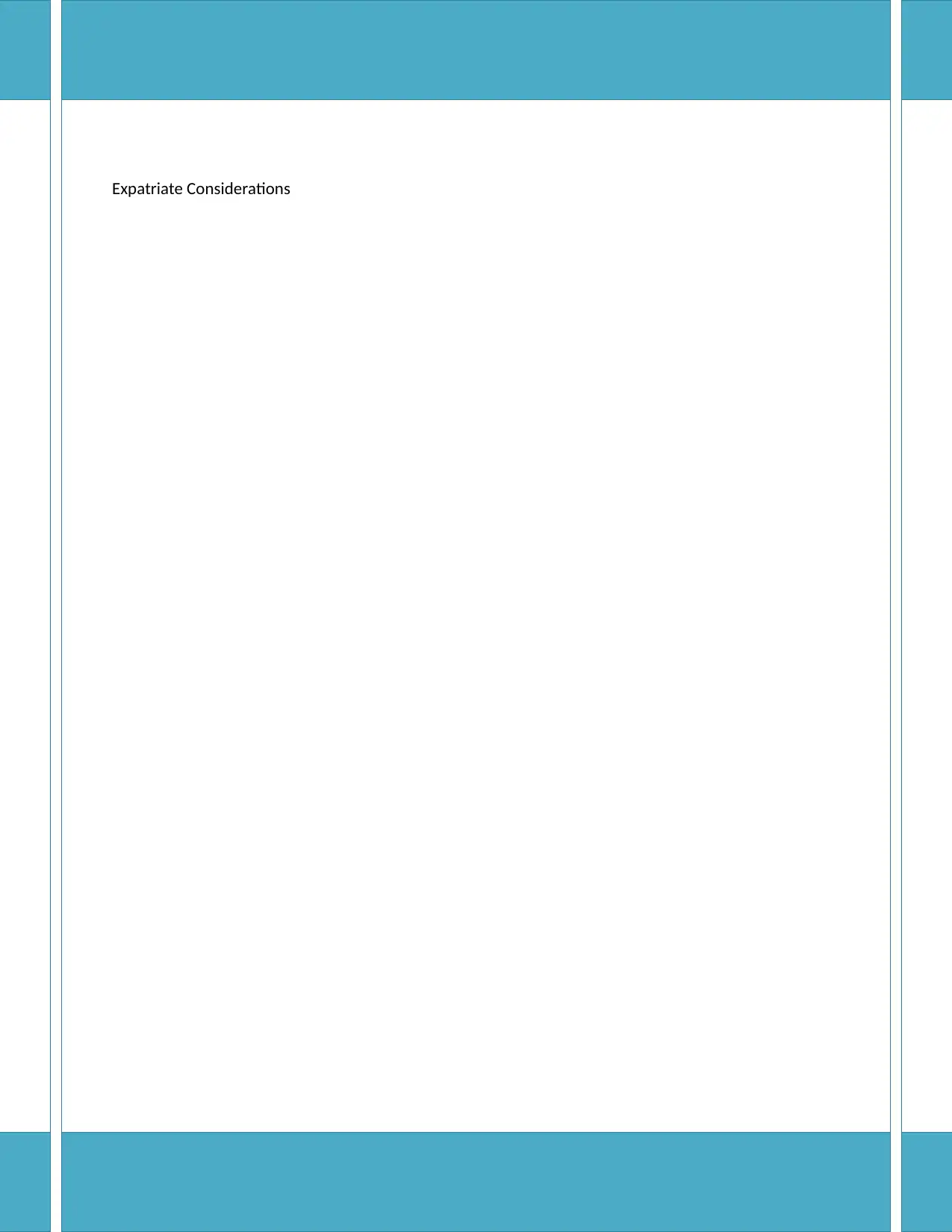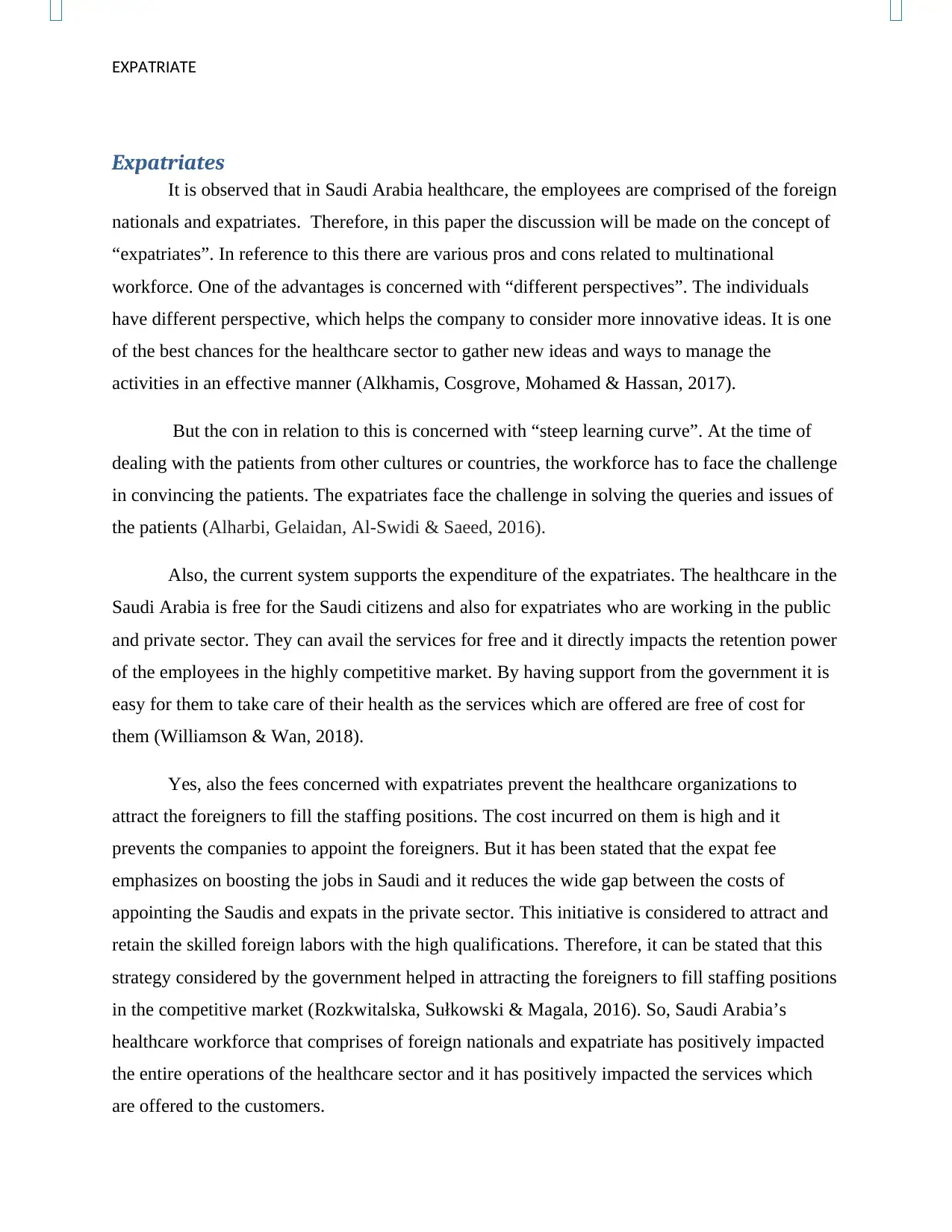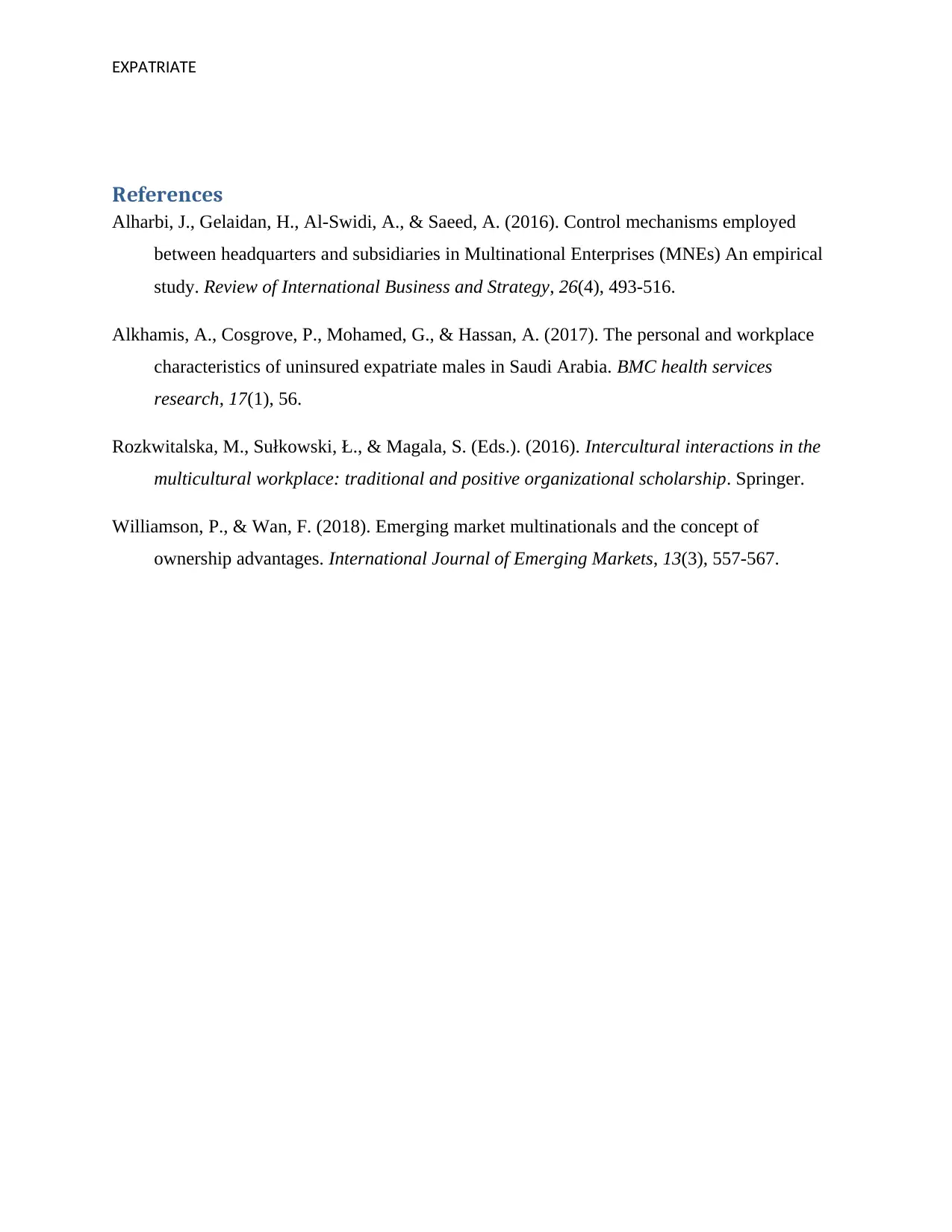Analysis of Expatriate Workforce in Saudi Arabia's Healthcare Sector
VerifiedAdded on 2023/04/23
|3
|626
|306
Report
AI Summary
This report provides an analysis of the expatriate workforce within Saudi Arabia's healthcare sector. It explores the advantages of having a multinational workforce, such as diverse perspectives, which can lead to innovative ideas. The report acknowledges the challenges, including the steep learning curve associated with dealing with patients from different cultures. It also discusses the financial aspects, such as free healthcare for expatriates and the impact of expat fees on staffing. The report concludes that the presence of foreign nationals and expatriates positively impacts the operations and services offered in the Saudi Arabian healthcare sector, contributing to its overall effectiveness and ability to attract and retain skilled foreign labor. The report references several academic sources to support its findings.
1 out of 3




![[object Object]](/_next/static/media/star-bottom.7253800d.svg)